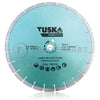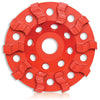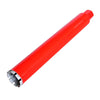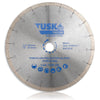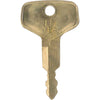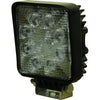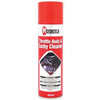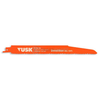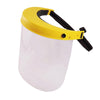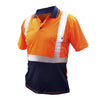Getting a solid foundation is key to any construction project, and that’s where compaction comes in. Compaction is essential for a strong construction foundation. The right equipment boosts quality and efficiency. This post covers the types of compaction tools, their uses, and how to pick the best for your needs. Proper soil and material compaction ensure stability and longevity. Tradesmart, a top New Zealand supplier, offers top-tier compaction gear to make your projects last.
Understanding of Compaction
Compaction involves compressing soil, gravel, asphalt, or concrete to reduce the air spaces between particles, thereby increasing their density. This process is essential for creating strong and stable foundations, as well as ensuring long-lasting structural integrity. Poor compaction can lead to severe issues such as settlement, cracking, and eventual structural failure, underscoring the importance of using the right equipment.
Types of Materials
Each material has its own unique properties like:
• Soil forms foundational layers for buildings and infrastructure.
• Gravel serves as a sub-base material for roads and driveways.
• Asphalt creates smooth top layers in road construction,
• Concrete is compacted in slabs and foundations.
Types of Compaction Equipment
1. Rammers (Jumping Jacks)
Rammers deliver a high impact force, making them ideal for compaction in cohesive soils and confined areas. High impact force and manoeuvrability make rammers effective for small, tight spots where other equipment might not fit. It is ideal for base preparation, asphalt patching, and trench work.
2. Plate Compactors
Plate compactors use a vibrating heavy plate to densify granular soils and asphalt by repeatedly pressing and shaking the material, enhancing ground stability and ensuring even compaction for construction or landscaping projects.
They come in various types:
- Single-directional: Best for small to medium projects like sidewalks and driveways.
- Reversible: Suitable for larger areas and deeper compaction.
- High-frequency: Designed for high-speed compaction of granular materials.
3. Roller Compactors
Roller compactors are heavy machines used to compress soil, gravel, asphalt, or concrete in construction. They are commonly used in road construction, airport runways, and large-scale infrastructure projects for stable and durable surfaces.
Roller Types:
- Smooth Drum Rollers: Ideal for asphalt and finishing surfaces.
- Padfoot Rollers: Best for compacting clay and silty materials.
- Pneumatic Rollers: Use rubber tires for compacting cohesive and granular soils.
Things to Consider When Choosing Compaction Equipment
Soil Type:
Different soil types, such as cohesive and granular soils, require different compaction equipment. Understanding the soil type at your project site is crucial for selecting the right tools.
Project Size and Scope:
The scale of your project will influence your choice of equipment. Smaller residential tasks might only require a plate compactor, while larger commercial undertakings could necessitate heavy-duty roller compactors.
Compaction Depth and Layer Thickness:
For shallow layers, light to medium plate compactors are appropriate, while deeper layers necessitate heavy machinery like large drum rollers or padfoot rollers to achieve the required compaction depth.
Accessibility and Manoeuvrability:
Consider the accessibility of your project site and the manoeuvrability of the equipment. Confined or hard-to-reach areas will require more compact and agile machines.
Tradesmart’s Recommended Compaction Equipment
Tradesmart offers top-tier compaction equipment including Rammer, Plate Compactors, and Rollers.
The RTX80D offers superior deep compaction with an optimal balance of weight and impact. It features an advanced three-way air filtration system, a reliable float bowl carburettor, and a low centre of gravity for stability. Transport rollers ensure easy and convenient handling.
HP60 - 65kg MEIWA Plate Compactor:
It is ideal for small to medium tasks like pathways, paving, and landscaping.
Powered by a Honda GX120 3.5hp engine
- Speed: 24-27 m/min.
- Vibration: 90.0Hz.
- Force: 10.8Kn.
MSR6KM - 642KG MEIWA VIBRATING ROLLER:
This Japanese Twin-Drum Roller features a reliable Kubota water-cooled diesel engine. Hydrostatic hand-controlled drive ensures smooth operation and reduces fatigue.
- Vibration Frequency: 55.0Hz
- Centrifugal Force: 13.7Kn.
- Honda GX390 petrol engine.
Choosing the right compaction equipment is crucial for the success of your construction projects. By understanding the different types of compaction tools and their applications, you can ensure optimal results and long-lasting foundations. At Tradesmart, we are committed to providing high-quality compaction equipment tailored to meet your specific needs.
Visit Tradesmart to explore our full range of compaction equipment. Let Tradesmart equip you with the tools for success.

































